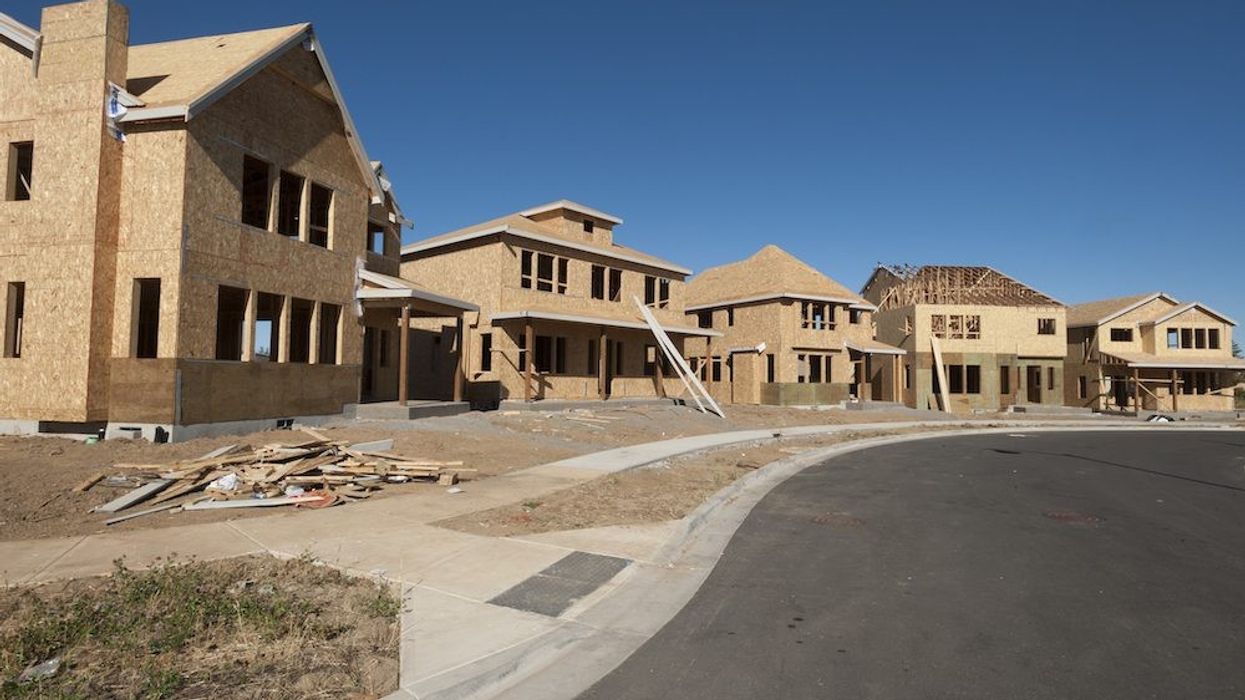Supply -- or lack thereof -- is front and centre in talks of the state of Canada’s housing market.
This morning, the Canadian Mortgage and Housing Corporation (CMHC) released figures that revealed that the standalone monthly seasonally adjusted annual rate (SAAR) of total housing starts in Canada’s urban areas declined in the month of August.
According to CMHC, the monthly SAAR of total housing starts for all areas of Canada in August was 267,443 units, down 3% from July. The SAAR of total urban starts decreased 3% to 246,771 units in August. Multi-unit urban starts declined 4% to 187,602 units, while single-detached urban starts increased 1% to 59,169 units.
Rural starts were estimated at a seasonally adjusted annual rate of 20,672 units.

"The six-month trend in housing starts was higher in August compared to July, despite a lower monthly SAAR. Housing starts activity remains elevated in Canada historically and have been well above 200,000 units since 2020," said Bob Dugan, CMHC's Chief Economist. "The decline in monthly SAAR housing starts in Canada's urban areas in August was driven by lower multi-unit starts. A decline in single-detached units in Vancouver was offset by higher multi-unit starts. Toronto posted strong increases across the board, while Montreal recorded a large (33%) decline in multi-unit starts, resulting in the overall decline for Canada."
The trend in housing starts was 267,309 units in August, up from 264,467 units in July, according to CMHC. This trend measure is a six-month moving average of the monthly SAAR of housing starts.
CMHC uses the trend measure as a complement to the monthly SAAR of housing starts to account for considerable swings in monthly estimates and obtain a clearer picture of upcoming new housing supply. In some situations, analyzing only SAAR data can be misleading, as the multi-unit segment largely drives the market and can vary significantly from one month to the next, says CMHC.

The good news is that the country's housing starts are actually quite high, especially given our current climate. But Marc Desormeaux, Principal Economist at Desjardins says cracks are starting to show. In a new report, he acknowledges that starts are near record levels -- but that there is room for caution.
"As widely expected by markets (and suggested by previous months’ building permit data), construction activity continues to hold up remarkably well in the face of an historic downturn in the Canadian home resale market," comments Desormeaux. "Still, starts are showing signs of weakening. We believe that these are but the early innings of a downturn in residential home construction -- building tends to lag purchase activity, and slowdown in the former looks inevitable given the pronounced and widespread drop in Canadian home sales and prices we’ve experienced in recent months."
The housing start data remains as important as ever, as housing supply remains at the forefront of political agendas and a hot topic of conversations.
According to a new report from RE/MAX Canada, housing inventory may reach a crisis point in major Canadian centres without intervention. With countless Canadians priced out of the housing market (despite cooling prices as of late), sky-high rents in cities like Toronto, and the return of mass immigration, the time to act is now.





















